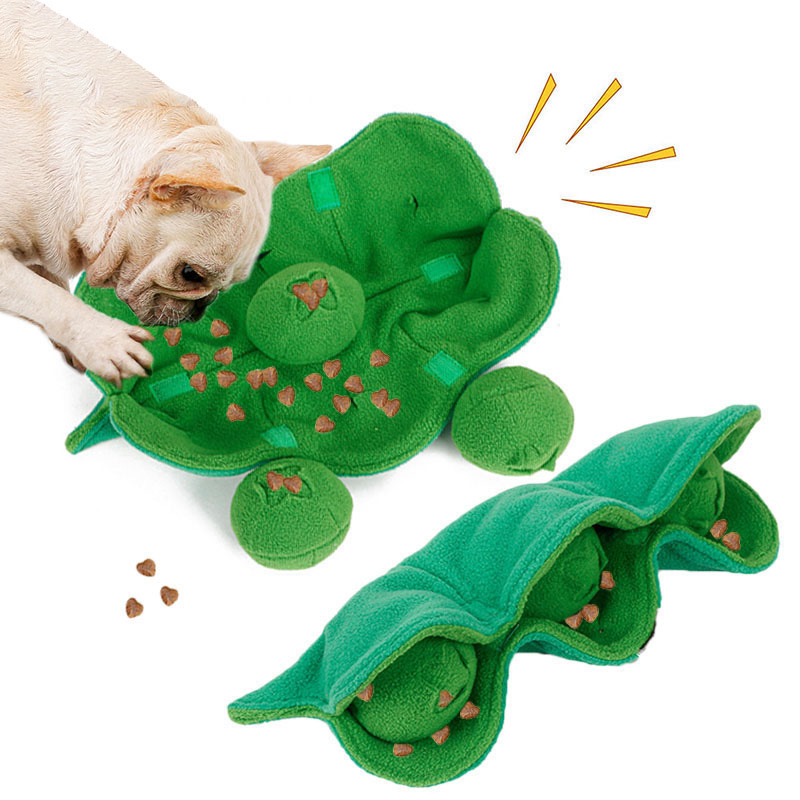Pets can experience anxiety and stress just like humans, and it’s important to take steps to ensure that your furry friend feels safe and relaxed. In this blog post, we’ll explore the causes of pet anxiety and stress and discuss the solutions that can help your pet feel at ease. From exercise to dietary changes to calming aids, there are a number of ways to reduce your pet’s anxiety and stress. We’ll also discuss the benefits of reducing pet anxiety and stress and provide tips on how to recognize the signs of pet anxiety and stress. By taking care of your furry friend and reducing their anxiety and stress, you can help ensure that they remain healthy and happy.

What are Pet Anxiety and Stress, and How Can We Help Our Pets?
Pet anxiety and stress are common issues for many pet owners. Pet anxiety and stress can be caused by a variety of things, including changes in the environment, changes in routine, a lack of exercise, or even loud noises or unfamiliar people. Pets can become anxious or stressed when they are separated from their owners, exposed to too much stimuli, or in unfamiliar surroundings. Pets can also become anxious or stressed when they experience physical discomfort or pain or are exposed to a frightening or unfamiliar situation.
There are a number of ways pet owners can help their pets reduce anxiety and stress. Engaging in regular exercise with your pet can help to reduce stress hormones, reduce boredom and restlessness, and boost your pet’s mood. Providing your pet with a balanced diet can help reduce their anxiety and stress and improve their overall well-being. Additionally, providing your pet with a secure environment and plenty of love and affection can help reduce their anxiety and stress. Finally, providing your pet with calming aids, such as pheromone diffusers, calming collars, and calming music, can help reduce stress hormones and provide your pet with a sense of security and comfort.
By providing your pet with the appropriate solutions to reduce their anxiety and stress, you can help ensure that they remain healthy and relaxed. Additionally, reducing pet anxiety and stress can have benefits for both pets and their owners, as it can help improve the relationship between them and protect their pets from potential health issues in the future.
What Causes Pet Anxiety and Stress?
Pet anxiety and stress can be caused by a variety of things, including changes in the environment, changes in routine, a lack of exercise, or even loud noises or unfamiliar people. Pets can become anxious or stressed when they are separated from their owners, exposed to too much stimuli, or in unfamiliar surroundings. Pets can also become anxious or stressed when they experience physical discomfort or pain or are exposed to a frightening or unfamiliar situation. In some cases, pet anxiety and stress can be caused by an underlying medical condition, such as a thyroid condition, an infection, or an allergic reaction.
In addition to environmental factors, pets can become anxious and stressed due to changes in the relationship between their owners and themselves. Pets may become anxious or stressed when their owners are away for extended periods of time, when their owners are not providing them with enough attention or affection, or when their owners are not providing them with enough structure and guidance. When pets are not given the emotional support and stability they need, they can become anxious and stressed and display signs such as pacing, panting, or trembling. It is important to recognize the signs of anxiety and stress in your pet and to provide them with the care and support they need to remain calm and healthy.
The Benefits of Reducing Pet Anxiety and Stress
Reducing pet anxiety and stress can have a number of benefits for both pets and their owners. For pets, reducing anxiety and stress can help them feel more relaxed and comfortable and can help them better cope with changes in their environment or routine. By reducing their anxiety and stress, pets can be better able to enjoy their daily activities and bond with their owners. Additionally, reducing your dog or cat anxiety and stress can help pets feel more secure and less fearful of new or unfamiliar situations.
Reducing pet anxiety and stress can also have benefits for pet owners. When pets are in a relaxed and comfortable state, they are more likely to behave in a more appropriate manner and be less prone to destructive behaviors such as excessive barking or digging. Furthermore, reducing pet anxiety and stress can help improve the relationship between pets and their owners, as pets who are less stressed will be more likely to form strong bonds with their owners. Reducing dog/ cat anxiety and stress can also help pet owners better understand and respond to their pets needs and behaviors.
Finally, reducing pet anxiety and stress can have positive health benefits for both pets and their owners. Stress and anxiety can cause physical symptoms such as digestive problems, muscle tension, and an increased heart rate, and they can also have a negative impact on the immune system. By reducing pet anxiety and stress, pet owners can help ensure that their pets remain healthy and happy and can help protect their pets from potential health issues in the future.
How do I know if my dog or cat has anxiety?
- Shaking or trembling
When a pet is anxious or stressed, they may shake or tremble, which could be a sign that they are feeling uncomfortable or scared.
- Panting
Panting is another common sign of anxiety and stress in pets. When a pet is panting, it may be a sign that they are feeling overwhelmed or anxious.
- Excessive vocalization
Pets may become more vocal than usual when they are feeling anxious or stressed. This could include excessive barking, meowing, or whining.
- Aggression
Pets may become more aggressive when they are anxious or stressed. If your pet is displaying aggressive behavior, it is important to take steps to help them feel more comfortable.
- Hiding
When a pet is feeling anxious or stressed, they may hide or seek out a place to retreat. If your pet is hiding, it is important to provide them with a safe and secure environment where they can relax.
- Pacing
When a pet is pacing, it can be a sign that they are feeling anxious or overwhelmed.
- Changes in eating habits
Pets may become picky eaters when they are anxious or stressed, or they may stop eating altogether. If your pet is exhibiting changes in their eating habits, it is important to try to identify the cause of their stress or anxiety.
How do I overcome my pet anxiety?
- Exercise
Exercise can be an effective way to reduce pet anxiety and stress. Engaging in regular exercise with your pet can help them feel more relaxed and be better able to cope with changes in their environment or routine.
- Mental stimulation
Providing your pet with mental stimulation can help to reduce their anxiety and stress. This can include playing games with your pet, providing them with toys, or teaching them new commands.
- Dietary changes
Evaluating the diet of your pet can help to reduce their anxiety and stress. Ensuring that your pet is getting the nutrients they need can help to keep them healthy and feeling relaxed.
- Regular visits to the vet
Regular visits to the vet can help to identify any underlying medical conditions that may be causing your pet’s anxiety or stress.
- Calming aids
There are a number of calming aids available that can help to reduce pet anxiety and stress. Examples of calming aids include pheromone diffusers, calming collars, and calming music.
- Behavioral therapy
Behavioral therapy can help to reduce pet anxiety and stress by teaching pets how to respond to stressful or anxious situations.
- Desensitization
Desensitization can be an effective way to reduce pet anxiety and stress by exposing them to a stressful or anxious situation in a gradual and controlled manner.
Exercise as a Solution to Pet Anxiety and Stress
Regular physical activity can help reduce stress hormones, reduce boredom and restlessness, and boost your pet’s mood. Exercise can also help to provide your pet with mental stimulation and give them something to focus on instead of feeling anxious or stressed.
Engaging in regular exercise with your pet can help to strengthen the bond between you and your pet and can provide your pet with an outlet to release any built-up energy or tension. Exercise can also help to provide your pet with an opportunity to explore and discover new things, which can help to reduce their anxiety and stress.
There are a variety of exercises that you can do with your pet, such as taking them for a walk, playing fetch, or engaging in agility training. You can also provide your pet with interactive toys, such as puzzle toys, or you can introduce them to new activities, such as swimming or agility courses.
In order to ensure that your pet is getting the most out of their exercise, it is important to ensure that you are providing them with an appropriate amount of exercise for their age, size, and breed. It is also important to ensure that your pet is getting enough rest in between their exercise sessions. By providing your pet with the appropriate amount of exercise and rest, you can help to ensure that they remain healthy and relaxed.
Diet and Nutrition as Solutions to Pet Anxiety and Stress
Diet and nutrition can play an important role in reducing pet anxiety and stress. Ensuring that your pet is getting the nutrients they need can help to keep them healthy and feeling relaxed. Providing your pet with a balanced diet can help to reduce their anxiety and stress and improve their overall well-being.
When selecting food for your pet, it is important to choose a diet that is appropriate for their age, breed, and activity level. It is also important to ensure that the food is nutritionally balanced and contains the right amounts of proteins, carbohydrates, and fats. Additionally, it is important to ensure that your pet is getting enough water, as dehydration can also contribute to anxiety and stress.
In addition to providing your pet with a balanced diet, there are some nutritional supplements that can help to reduce pet anxiety and stress. Supplements such as omega-3 fatty acids, chamomile, and L-theanine can help to reduce stress hormones and promote relaxation.
Finally, it is important to pay attention to your pet’s eating habits. If your pet is exhibiting changes in their eating habits, it is important to try to identify the cause of their stress or anxiety. If you are able to identify the cause, you can then work to reduce your pet’s anxiety and stress. By providing your pet with the appropriate diet and nutrition, you can help to ensure that they remain healthy and relaxed.
Natural Remedies for Pet Anxiety and Stress
Natural remedies can be an effective way to reduce pet anxiety and stress. Natural remedies can help to reduce stress hormones, reduce boredom and restlessness, and boost your pet’s mood. Natural remedies can also help to provide your pet with mental stimulation and give them something to focus on instead of feeling anxious or stressed.
One natural remedy that can be used to reduce pet anxiety and stress is aromatherapy. Essential oils such as lavender and chamomile, can help to reduce stress hormones and promote relaxation. These oils can be diffused into your pet’s environment or applied topically to their skin.
Another natural remedy that can help to reduce pet anxiety and stress is herbal supplementation. Herbal supplements such as chamomile, Valerian root, and passionflower can help to reduce stress hormones and promote relaxation. It is important to note that while herbal supplements can be effective, they should only be used under the guidance of your veterinarian.
Finally, engaging in regular massage can be another effective way to reduce pet anxiety and stress. Massage can help to reduce stress hormones, reduce muscle tension, and improve circulation. Regular massage can also help to improve the bond between you and your pet and provide them with an outlet to release any built-up energy or tension. By using natural remedies, you can help to ensure that your pet remains healthy and relaxed.
Behavioral Therapy as a Solution to Pet Anxiety and Stress
Behavioral therapy can be an effective way to reduce pet anxiety and stress. Behavioral therapy can help to teach pets how to respond to stressful or anxious situations and can help to reduce their anxiety and stress. Additionally, behavioral therapy can assist pet owners in better understanding and addressing the needs and behaviors of their animals.
When engaging in behavioral therapy, it is important to ensure that the environment is calm and free from distractions. It is also important to ensure that you are providing your pet with positive reinforcement throughout the process. Effective reinforcement can include verbal praise, treats, or toys.
Behavioral therapy can also involve desensitization, which is the process of exposing your pet to a stressful or anxious situation in a gradual and controlled manner. For example, if your pet is anxious or stressed in unfamiliar situations, you can start by exposing them to a low level of stimuli and gradually increase the level of stimuli as your pet becomes more comfortable and relaxed. Through the process of desensitization, your pet can learn to better cope with changes in their environment or routine. By engaging in behavioral therapy, you can help to ensure that your pet remains healthy and relaxed.
Other Pet Anxiety and Stress Solutions
In addition to the solutions mentioned above, there are a number of other ways to reduce pet anxiety and stress. One way is to provide your pet with a secure environment. This can include providing them with their own bed, crate or designated area in your home. You can also provide them with familiar items such as toys or blankets. Giving your pet a safe environment might help them feel less stressed and anxious and more at ease in their surroundings.
Giving your pet a lot of love and attention is another approach to ease their stress and anxiety. Affectionately treating your pet can lower stress hormone levels and encourage calm. Additionally, providing your pet with plenty of attention and physical contact can help to strengthen the bond between you and your pet and provide them with an outlet to release any built-up energy or tension.
You can also provide your pet with calming aids such as pheromone diffusers, calming collars, and calming music. These aids can help to reduce stress hormones and provide your pet with a sense of security and comfort. Additionally, giving your pet interactive toys such as puzzle toys might make them feel less stressed and anxious while also stimulating their minds.
These interactive toys are available in Pet Hometown:
Last but not least, having a routine can ease anxiety and stress in dog and cat friends. Setting up a regular routine allows you to provide your pet structure and stability as well as lower their stress and anxiety. Establishing a routine can help your pet build a bond with you and receive structure and direction from you. You can guarantee that your pet stays healthy and at ease by giving them the necessary remedies.
Additionally, having a routine can help to provide your pet with an opportunity to bond with you and provide them with structure and guidance. By providing your pet with the appropriate solutions, you can help to ensure that they remain healthy and relaxed.
Conclusion: Taking Care of Your Furry Friend and Reducing Anxiety and Stress
Taking care of your furry friend and reducing their anxiety and stress is an important part of providing them with the best quality of life. From exercise to dietary changes to calming aids, there are a number of ways to reduce pet anxiety and stress. It is also important to recognize the signs of pet anxiety and stress and to provide your pet with the care and support they need to remain calm and healthy. By providing your pet with the appropriate solutions, you can help to ensure that they remain healthy and relaxed and can help to protect them from potential health issues in the future.
Related:
dog anxiety, treat dog anxiety, dog anxiety symptoms, treatments for dog anxiety, what can i give my dog for anxiety, how to calm an anxious dog, medication for dog anxiety, dog anxiety medication, signs of dog anxiety, how to calm a stressed dog, critical signs of stress in a dog




Good one sirr
Hey people!!!!!
Good mood and good luck to everyone!!!!!